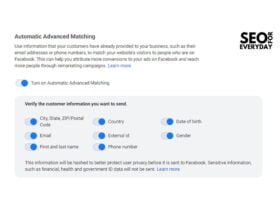What Is Multi-Location SEO?
Multi-location SEO helps businesses show up in search results for different places or areas. It’s especially important for companies that serve multiple cities, regions, or countries. Whether you’re running a chain of salons, a franchise business, or a service provider with several operational zones, this “Keyword Research for Multiple Locations” strategy will help you to stay visible for the right audience.
Why It Matters in Local Marketing
People don’t just search for “best dentist” anymore—they search for “best dentist in Chicago” or “affordable plumber near me.” If your website isn’t optimized for each of your service areas, you’re missing out on a lot of local traffic and potential customers.
Understanding the Basics of Keyword Research
The Role of Keywords in SEO
Keywords are the words and phrases people use when searching online. Including the right ones on your website helps search engines understand your content and show it to users searching for related topics.
Local vs. Global Keywords:
These keywords are tied to places—like towns, cities, or neighborhoods:
- Global: “web designer”
- Local: “web designer in Houston”
Intent-Based Keyword Targeting:
It’s not just about what users are searching, but why they’re searching it. Intent can be:
- Informational (“How to fix a leaky faucet”)
- Navigational (“Plumbing service website”)
- Transactional (“Hire plumber in Miami”)
Step-by-Step Guide: Keyword Research for Multiple Locations
Step 1: List All Your Target Locations
Start by making a complete list of all the cities, regions, or areas where your business operates. Be specific—even neighborhoods count.
Step 2: Identify Core Keywords Relevant to Your Business
What services or products do you offer? Create a list of your top keywords, such as:
- “Hair salon”
- “Dental clinic”
- “Lawn care service”
Step 3: Combine Keywords with Locations
Now mix and match your core services with each location. For example:
- “Hair salon in Austin”
- “Best dental clinic in San Diego”
- “Affordable lawn care in Chicago”
Step 4: Use Keyword Tools with Geo Filters
Use tools like:
- Google Keyword Planner (Set location filters)
- SEMrush or Ahrefs (Check local difficulty)
- BrightLocal (Local SEO audit)
Step 5: Analyze Search Volume and Competition by Location
Choose keywords that:
- Have good search volume
- Show manageable competition
- Reflect strong intent
Best Keyword Research Tools for Multiple Locations
Google Keyword Planner:
Free and integrated with Google Ads. Perfect for checking city-based keyword trends.
Ubersuggest:
A beginner-friendly tool that also gives local suggestions when you enter a city-specific term.
SEMrush & Ahrefs:
Great for advanced users. These tools help identify local keyword gaps and competitor strategies.
BrightLocal & Whitespark:
Specialized tools built for local SEO, including keyword discovery, citation building, and reputation tracking.
Creating Location-Specific Keyword Lists
Categorize Keywords by City or Region
Build a spreadsheet where you track each city and its associated keywords. Example:
CityKeyword
Dallas “Wedding photographer Dallas”
Orlando “Top-rated dentist Orlando”
Organize Long-Tail vs. Short-Tail Keywords
Long-tail keywords are specific, like:
- “affordable dog groomer in downtown Atlanta”
Short-tail keywords are general, like:
- “dog groomer Atlanta”
Use both for a balanced strategy.
How to Optimize Pages with Location Keywords
Create Location Landing Pages
Each location should have its dedicated page. This helps Google understand that you serve specific areas.
Use Location Keywords in On-Page SEO
Meta Titles, Headers, and URLs
Example:
- Title: “Best Carpet Cleaning in Los Angeles”
- URL: www.example.com/carpet-cleaning-los-angeles
Image ALT Text and Internal Linking
Use keywords naturally in image descriptions and link between related city pages.
How Google Business Profiles Help with Local SEO
Add Keywords to Business Descriptions
Include your primary keywords in the description, services, and even in posts.
Use Posts and Services with Geo-Keywords
Update regularly with offers or updates like:
- “20% off dental cleaning in Seattle this month!”
Leveraging Local Search Intent
Understand What Locals Are Searching For
Research what people in each city care about. For example:
- In Miami: “AC repair during hurricane season”
- In Denver: “Winter car detailing services”
Use Hyper-Local Language and Terms
Speak like the locals do. Use slang or regional references when appropriate.
Common Mistakes in Keyword Research for Multiple Locations
Keyword Cannibalization Across Locations
Avoid using the same keyword on different pages, as it may confuse search engines. Always pair it with unique location identifiers.
Not Updating Keywords Regularly
Search trends evolve. Refresh your research every 3-6 months.
Using Competitor Analysis to Boost Your Local Strategy
Analyze Competitors by Location
Search your target keywords and see who’s ranking. Check:
- What keywords are they using
- Their content structure
- Their backlinks
Borrow and Improve on Their Keyword Tactics
Use tools like Ahrefs to reverse-engineer their strategy—and do it better.
Tracking Keyword Performance Across Locations
Use Rank Tracking Tools for Specific Cities
Set up tracking in:
- SEMrush
- SERanking
- Whitespark
Set Up Location-Based Reports in Google Analytics
Use UTM parameters and filters to break down performance by city.
Scaling Your Strategy for National or Global Reach
When to Localize vs. Generalize
- Localize when targeting specific service areas
- Generalize when building brand authority
Building Authority in Multiple Markets
Get reviews, links, and citations from each local market. These build trust and rankings.
Content Strategies: Keyword Research for Multiple Locations
Blogs, Guides, and Local News
Write content like:
- “Top 10 Outdoor Wedding Venues in Austin”
- “Guide to Spring Lawn Care in Chicago”
Customer Testimonials from Different Locations
Highlight location in the testimonials:
“Thanks to [Company] in Dallas, my roof looks brand new!”
Local Link Building with Keyword Anchors Text
Reach Out to Local Directories and Influencers
List your business in:
- City directories
- Local chambers of commerce
- Hyper-local blogs
Use Localized Anchor Text for Backlinks
When building backlinks, use terms like:
- “best HVAC service in Phoenix”
Conclusion
Researching keywords for multiple locations isn’t just about slapping a city name next to a keyword. It’s about understanding your audience in each location, using the right tools, optimizing your content smartly, and tracking results. Whether you’re scaling a small business or managing a national franchise, this guide can help you bring more local traffic and convert more customers. Start local. Think global. Grow smart.
Frequently Asked Questions
1. What is the best free tool for location-based KWs research?
Google Keyword Planner is the best free tool for checking search volume and trends for specific locations.
2. How do I avoid duplicate content for multiple locations?
Create unique content for each location page. Use different wording, customer stories, and service angles.
3. Should I create separate websites for different cities?
Only if they are truly separate businesses. Otherwise, keep one site and use landing pages.
4. How regularly should I review and update my keyword list?
Every 3-6 months, or whenever there’s a big change in local demand or services.
5. Can I use one keyword list for all my locations?
No. Customize your list based on city-specific trends, slang, and local competition.








1 Comment